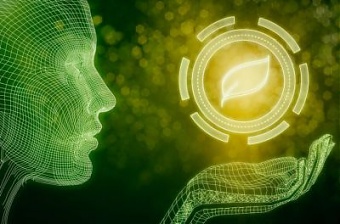EU – Baltic States, Good for Business, Modern EU, Technology
International Internet Magazine. Baltic States news & analytics
Wednesday, 21.01.2026, 21:17
Digital agenda for a circular economy: a new EPC's project
 Print version
Print version |
|---|
In its Circular Economy Strategy, presented in December 2015, the European
Commission envisaged actions across the whole cycle from production to
consumption, from consumption to waste, and from waste to production. The
Strategy acknowledged that innovation and technology could help rethink these
patterns and processes.
A multi-stakeholder
approach is to ensure a frank and constructive dialogue between representatives
of EU institutions, member states, regions, industry, NGOs and academia.
Through innovation, workshops with a
multi-disciplinary bottom-up approach will show practical aspects of
digitalisation. As to impact, an action plan will be presented to the
Commission somewhere in 2019.
Project's context and goals
Transition from a linear to a circular
economy, where resources and materials are restored and reused, would lead to a
more resource-efficient and competitive European economy. With this
transformation gaining political traction and winning support from a wide range
of stakeholders, different initiatives are spreading across the European Union.
However, a fully functional circular economy system across the EU states
requires overcoming obstacles, including presently dominating linear practices
in economies, complex mix of processes and materials, and lack of collaboration
between relevant actors.
Digital solutions can represent a perfect
example: these solutions can enable a better use of resources and increase the
efficiency of national economies. For example, they can provide knowledge on
materials and behaviours as well as facilitate partnerships between different
stakeholders. In order to harness the full potential of these solutions, it is
necessary to increase awareness of these possibilities and address the barriers
such as lack of resources, knowledge and legal certainty that currently hinder
the useof new economic models.
The EU states have to evaluate current EU
initiatives on new infrastructure for digitalisation and digital transformation
of industry as well as upcoming legislative proposals on cross-border flow of
data, online platforms, and the access and reuse of public data from circular
economy perspectives.
The transition to a circular economy can
only succeed, if the EU member states can make the most of digitalisation,
supported by a coherent EU policy framework.
The EPS's role
For years, the European Policy Center, EPC has
been actively engaged in promoting discussion about "smarter use" of
existing resources in Europe, about the production models, the way consumers
use and manage existing resources and waste, as well as about creating a
digital agenda in European states.
Therefore, the EPC is well placed to
consider the interlinkages between circular economy and the digital agenda in a
multi-stakeholder setting and contribute to shaping the sustainability policy
agenda.
See more on EPC on: http://www.epc.eu/index.php
With these ideas, the EPC is launching a
Task Force to discuss the ways the digitalisation process and innovative technologies
can support the transition to a circular economy. It will develop a roadmap for
action that will boost the synergies between the circular economy and digital
agendas.
Activities and outputs
The Task Force will start its work at the
end of 2017; the EPC's input paper will spur the discussion at an opening
High-level Policy Dialogue and a Steering Committee meeting will follow.
Five multi-stakeholder workshops are
planned so the Task Force can review, with the help of concrete examples, the
linkages between digitalisation and circular economy, the opportunities created
by digital technologies and the challenges associated with harnessing their
full potential for the transition to a circular economy.
The final list of topics to be covered
remains to be determined by Task Force members and EPC retains the possibility
to organise additional discussions, should the need arise.
Concrete policy recommendations for
further action at the EU and the member state levels will be elaborated
throughout the project and presented along with the main findings in a final
publication and at a final high-level policy dialogue. The final publication
will put forward a digital roadmap towards the circular economy, which will be
shared also with the new European Commission in 2019.
Partnerships
The EPC is looking for partners interested
in providing financial support to cover the costs associated with the
preparation and logistics for the events as well as the drafting and
publication of the final issue paper.








 «The Baltic Course» Is Sold and Stays in Business!
«The Baltic Course» Is Sold and Stays in Business!

